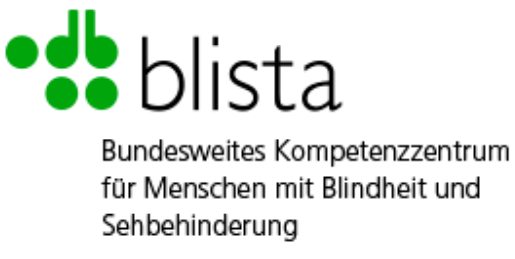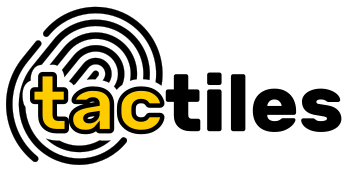Tactiles.eu is a platform that resulted from the Erasmus+ project 3D4VIP. It has been designed to serve as a database for 3D models for the education of st. The platform also offers guidelines, instructions and recommendations about creating 3D educational models for this target group, together with advice and information about how VI students can learn about 3D design and printing. In the future, the platform can be used to upload other types of tactile educational materials. Collaborations with other initiatives focused on VI tactile materials will be sought.
- 3D model database. After the evaluation of current existing databases, the 3D4VIP team has developed a new platform and online database. In the database, users can find models, specifically designed for VI and MDVI learners. The 3D models included in the database support current and new curricula of partners involved in the project. All materials can be freely downloaded, printed and used immediately in the classroom.
- Guidelines. The guidelines developed during this project and shared on this platform support e users in the process of designing and producing 3D models for VI or MDVI students. The guidelines provide a wealth of advice and recommendations including instructions about using 3D printers, choice of materials, and didactical considerations when creating 3D models for VI students.
- Getting started. 3D4VIP focuses on raising awareness about the educational benefits of using 3D models with VI and MDVI learners. A series of short introductory videos are provided on the platform to support users in getting started – outlining choice of models; design of models; the use of models in the classroom and information about how VI students can also learn about 3D design and printing.
- Acces to 3D printing for VI learners.
Involved organisations
1. Koninklijke Visio Netherlands
Royal Dutch Visio is a centre of expertise for blind and partially sighted people of all ages, including those with additional disabilities in the Netherlands. Visio enables visually impaired people to live, learn and work independently and provides its expertise in this area.
The range of expertise consists of: early intervention, low vision, itinerant teaching, computer skills training, employment, social skills, orientation and mobility, psychosocial support, special education, leisure training, daily living skills, day care and accessibility. Visio employs more than 2500 people and has a countrywide coverage with more than 40 locations in The Netherlands, including living and day care facilities as well as 5 schools.
2. Blista
Blista is a nationwide competence centre for people with blindness and visual impairment as well as an open and lively educational and meeting place for young and old, based in the heart of Germany. Blista stands for a highly qualified organisation, which offers support based on individual requirements, potential and interests of the individual. The work of the organisation focuses on children and young people, as well as professional workers, seniors, families and friends. In addition, the work also includes offering advice to (mainstream) schools, municipalities, employers etc. with an aim to break down barriers in a visually oriented world.
3D-printing has been established at the organisation since 2013. Fourth generation printers are in use at the school and thus a high level of expertise in the application of this technology in an educational context. We regularly carry out projects with blind or visually impaired students, and we also hold external workshops on the subject. In addition to the general university entrance qualification, students at the Blista can complete various professional training courses in the IT sector.
3. Fundacion Aspaym Castilla y Leon Spain
ASPAYM Castilla y León Foundation started working on 2004, twelve years after the establishment of ASPAYM in the region of Castilla y León. Its main aims are to promote autonomy, equal rights and opportunities and to increase quality of life of people with physical disabilities, allowing them to integrate in the society.
The main objectives of ASPAYM Castilla y León are:
- To encourage the exercise of autonomy of people with disability, in particular those with physical disabilities.
- To promote the development of activities and programs in order to empower the inclusion and participation in society of people with disabilities.
- To establish a plan for internal and external communication to enhance the mission of the association.
- Further research and innovation to improve the quality of life of people with disabilities.
Currently, the Foundation has more than 80 employees, around 1700 fellows and almost 200 volunteers, and it has presence in Valladolid, Ávila, Burgos, León and Palencia.
4. Sight Schotland United Kingdom
Sight Scotland runs the Royal Blind School, Scotland’s only residential school specialising in the care and education of children and young people with vision impairment, including those with multiple disabilities and vision impairment (MDVI).
The Royal Blind School provide education for pupils aged 5 to 19 years old. We have a high ratio of staff to pupils. Each child follows an individualised education programme, which is underpinned by the Curriculum for Excellence and Getting It Right For Every Child (GIRFEC). We offer a broad general education and offer qualifications and accreditations by the Scottish Qualifications Authority (SQA), Junior Awards Scheme Scotland (JASS) and the Award Scheme Development and Accreditation Network (ASDAN).
Our school employs specialist teachers, many of whom are QTVI’s (Qualified Teachers of Children and Young People with Vision Impairment). Our teachers work closely with therapy staff, habilitation specialists, nurses, residential care workers and classroom staff. The school campus has well-equipped specialist classrooms for Science, Maths, Social Studies (including Geography), Art, Music, Drama, P.E. and Independent Living Skills.
Our team also provides outreach support for children and young people with vision impairment who attend inclusive education settings within three local authorities in Scotland. We employ a multi-disciplinary approach that involves both the school and family support. Through our support, our partners in education are equipped with the strategies, tools and understanding of visual impairment to enable in all settings to access the curriculum.
5. Staatliches Sonderpädagogisches Bildungs- und Beratungszentrum mit Internat Förderschwerpunkt Sehen, Schloss-Schule Ilvesheim Germany
The Schloss-Schule Ilvesheim, Staatliches Sonderpädagogisches Bildungs und Beratungszentrum mit Internat – Förderschwerpunkt Sehen, is the only public school of its kind in Baden-Württemberg. It provides various services for the individual support and education of children and adolescents with visual impairment, severe visual impairment or blindness.
The Schloss-Schule Ilvesheim operates as an all-day school and forms an educational unit with the boarding school. Through the inclusion of medical services, all children and adolescents can take advantage of the school’s offerings, regardless of the severity of their disability or other illnesses. The different educational programs of the school are based on the corresponding educational programs for sighted children and adolescents and the competencies and educational standards defined there. These are supplemented by disability-specific subject curricula and additional offerings. These are competencies in the areas of perception, independence, communication, media and methods, identity and interaction with others, movement and mobility, life practice and preparation for post-school life / life planning. Within the framework of individual learning and development support, focal points and contents are discussed with parents and students.
Experts
- Anna Christal
- Aukje Snijders
- Barbara Henn
- Biljana Volchevska
- Callum Bennetts
- Cameron Henderson
- Daniel Conde
- David Palencia
- Erich Rüger
- Evert Rasing
- Heike Flach
- Jens Flach
- José Luis Martinez
- Knut Büttner
- Lauren Eliott Lockhart
- Pam Young
- Ruben Brandsma
- Sophie Milne
- Tobias Wolfsteiner
- Wendy Voorn




